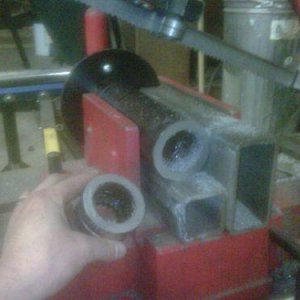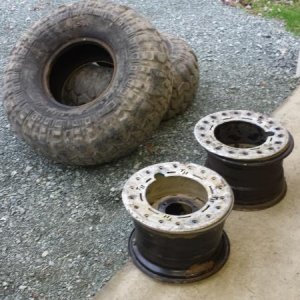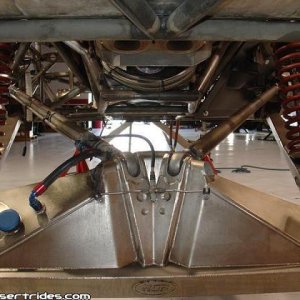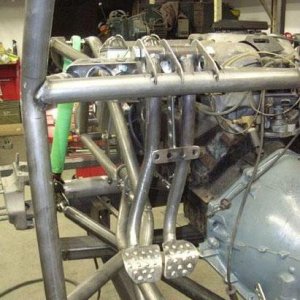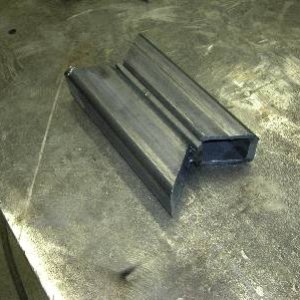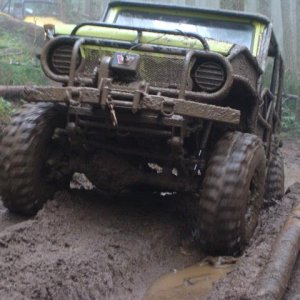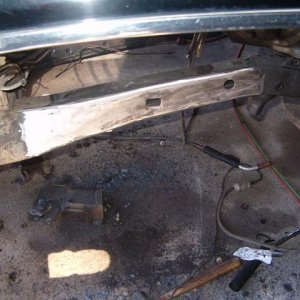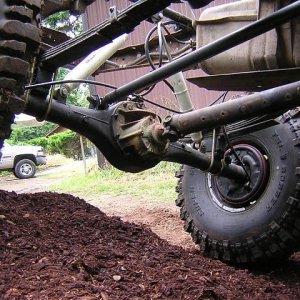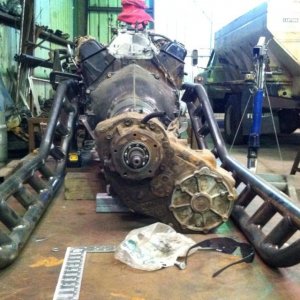Burbling2500
Member
- Joined
- Sep 19, 2022
- Messages
- 13
I just joined the forum here to learn more after finding folks here seam to have a lot of knowledge and experience running SBC on propane.
The project I picked up is an old '93 2500 Suburban municipal fleet vehicle in great shape. Planning for travel, tow and some overlanding. It was bought with the intention or propane conversion right off the bat. The kit going in is for dual fuel and will automatically adjust mix from unleaded to propane with the tbi and o2 sensor.
The 32 propane gallon tank fits right behind the pumpkin where the 42 was. It has a vapor valve and can run generator, heater grill etc or relief to atmosphere to pull off any LP tank. T Diverter also will allow it to fill small LP tanks. The unleaded is a 27 gallon off an old astro that just barely fits under behind drivers side.
The engine is a 350 vortec with all roller hardware and having it rebuilt by an engine builder with a lot or experience in marine and industrial into a 383. I saw there were a few on here who have already owner and run 350's and 383's on propane and hoping to get some feedback.
This engine builder brought up a bunch of important factors of propane engine builds I found else where. The use of hardened valve seats, not to use chrome piston rings, Sodium stallite valves, oversized or quad core radiator for keeping engine cool with LP's heat potential, wants to use marine vortec heads and he's planning other machining touches in the combustion chamber. Flat or d pistons. Quench he brought up to optimize.
I have confidence in his experience with industrial like forklifts and marine as well as auto, but one thing I am hung up on is most of these forum threads bring up the higher compression ratio being almost essential to gain the benefit of the 108 octane of propane or get the best potential out of the fuel.
He seams to think it should stay at 9.3:1 to 9.4:1 Rather than the 11:1 or higher I see brought up. I know building on engine a balanced feat of engineering and changing one thing effects the other and wondering if I am missing something. I am not an engine builder and don't want to ask for something I don't understand about the 383, quench or other factors.
Use may also be a reason he isn't wanting to raise the compression ratio? This vehicle is intending to be 90% plus propane fuel for daily driving and towing to capacity cross county and overcome the longevity issues engines associated with dry fuels.
Any thoughts or advice from on the compression issue or in general would be greatly appreciated! Lol, aside from go unleaded. We have a 1200 gallon tank with dispenser and looking forward to just buying clean burning fuel once a year that can also power the rest of the home. Unleaded is better as a backup for our situation and just want to get the engine right.

The project I picked up is an old '93 2500 Suburban municipal fleet vehicle in great shape. Planning for travel, tow and some overlanding. It was bought with the intention or propane conversion right off the bat. The kit going in is for dual fuel and will automatically adjust mix from unleaded to propane with the tbi and o2 sensor.
The 32 propane gallon tank fits right behind the pumpkin where the 42 was. It has a vapor valve and can run generator, heater grill etc or relief to atmosphere to pull off any LP tank. T Diverter also will allow it to fill small LP tanks. The unleaded is a 27 gallon off an old astro that just barely fits under behind drivers side.
The engine is a 350 vortec with all roller hardware and having it rebuilt by an engine builder with a lot or experience in marine and industrial into a 383. I saw there were a few on here who have already owner and run 350's and 383's on propane and hoping to get some feedback.
This engine builder brought up a bunch of important factors of propane engine builds I found else where. The use of hardened valve seats, not to use chrome piston rings, Sodium stallite valves, oversized or quad core radiator for keeping engine cool with LP's heat potential, wants to use marine vortec heads and he's planning other machining touches in the combustion chamber. Flat or d pistons. Quench he brought up to optimize.
I have confidence in his experience with industrial like forklifts and marine as well as auto, but one thing I am hung up on is most of these forum threads bring up the higher compression ratio being almost essential to gain the benefit of the 108 octane of propane or get the best potential out of the fuel.
He seams to think it should stay at 9.3:1 to 9.4:1 Rather than the 11:1 or higher I see brought up. I know building on engine a balanced feat of engineering and changing one thing effects the other and wondering if I am missing something. I am not an engine builder and don't want to ask for something I don't understand about the 383, quench or other factors.
Use may also be a reason he isn't wanting to raise the compression ratio? This vehicle is intending to be 90% plus propane fuel for daily driving and towing to capacity cross county and overcome the longevity issues engines associated with dry fuels.
Any thoughts or advice from on the compression issue or in general would be greatly appreciated! Lol, aside from go unleaded. We have a 1200 gallon tank with dispenser and looking forward to just buying clean burning fuel once a year that can also power the rest of the home. Unleaded is better as a backup for our situation and just want to get the engine right.





